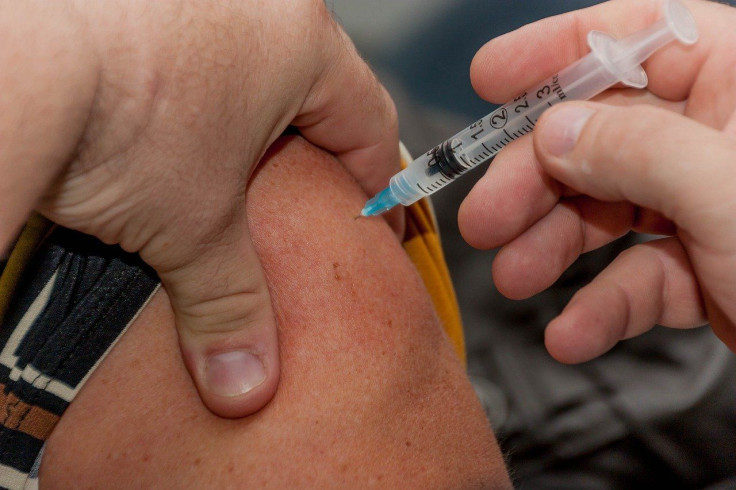How A Flu Shot Could Help Protect Patients From A Mini-Stroke Or Heart Attack
KEY POINTS
- New research revealed patients who receive flu shots have lower risk of mini-stroke
- They also have a lower risk of suffering from cardiac arrest or death
- The subjects received flu shots while they were hospitalized
Patients who had flu shots while hospitalized are at lesser risk of suffering cardiac arrest, mini-stroke or even death, a new study says.
The study was focused on high-risk groups including patients who are 50 years old and above, those who live in nursing homes, American Indians/Alaska natives, and those suffering from a chronic medical condition, obesity, or AIDS. Except for the American Indian/Alaska native group, the focus groups were less likely to receive in-hospital flu shots than other hospitalized patients, US News and World Report said.
"The flu vaccination rate was paradoxically low in high-risk groups, who are already more susceptible to getting the flu than the general, average-risk (hospital) population," said the study's lead author, Roshni Mandania, a fourth-year Texas Tech Health Sciences Center medical student.
He said a mere 1.8% of adults 50 years old and above in the study received flu shots in hospitals compared to the rate of around 15% for all hospitalized patients. Mandania said it is hard to ignore these alarming numbers.
The study's initial research and findings will be presented at the Basic Cardiovascular Sciences Scientific Sessions virtual conference of the American Heart Association. The online conference began Monday, July 27, and end on July 30.
Researchers analyzed 2014 National Inpatient Sample, a public database that records hospital stays in the U.S., data from over seven million hospital patients. They found that only around 168,000 of the patients had flu shots during hospitalization. The study did not consider patients who already were vaccinated before their hospital admission.
The study showed that patients 50 years old and above who received flu shots were 85% less likely to suffer cardiac arrest and 73% less likely to die during their stay in hospital compared to those who did not receive the shots. The vaccinated group was also found to be at 28% lower risk of heart attack and 47% less likely to suffer from a transient ischemic attack, commonly known as a mini-stroke, during their hospitalization.
The researchers also linked flu shots to reduced rates of a mini-stroke and heart attack in nursing home residents, obese people and American-Indians/Alaska natives. The reduction among AIDS patients was not statistically significant, researchers said.
It also showed that patients belonging to some high-risk groups who had their flu shots were at higher risk of heart failure and stroke. Researchers were further examining this particular result. Those in the 50-year-old-plus group, for instance, were at 85% increased risk of having a stroke while their risk for heart failure was 78% higher. Nursing facility residents were at 92% and 33%, and obese patients were at 49% and 78% higher risk respectively.
Epidemiologist Donna Arnett, the dean of the College of Public Health at the University of Kentucky, said past studies suggested flu shots help protect against heart failure and stroke. However, these studies were conducted on people who are not hospitalized. Arnett was not involved in the study. She said one likely explanation is that the new study did not consider other medical conditions that could increase the risk of heart failure or stroke in high-risk patients.

© Copyright IBTimes 2024. All rights reserved.





















